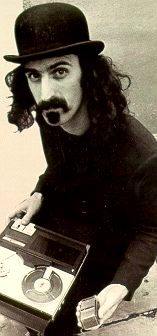
I am plowing through George Steiner’s book, Antigones. I have a life long interest in classical Greek poetry , philosophy and drama. Ostensibly each morning I spend time scraping away a few molecules of my ignorance of the Greek language in study. Behind this determination to learn Greek are a host of connections to texts by Plato, Homer and the playwrights (Sophocles, Aristophanes, and others).

Steiner begins his examination of the endurance of the Antigone story in Western Civilization’s “Literature, Art and Thought” with the philosophers. Many of the thinkers he draws on are familiar to me: Kant, Shelly, Matthew Arnold, Goethe, Hegel, Nietsche and others. Steiner is obviously working in a intellectual vein that also includes more modern thinks like Kierkegaard and Borges (both of whom I have read a bit in) and even Walter Benjamin and Adorno (whom I have not read; the latter of which Frank Zappa seems to have been influenced by).


The upshot of this is that he mentions a writer that I have not heard of, much less read: Friedrich Hölderlin.

Apparently Hölderlin was a very influential Romantic German poet and thinker. As described by Steiner I find his ideas intriguing. Hölderlin was interested in translation and did a German one of Antigone that was thought of as doggerel at the time (early 1800s) but was later considered the ‘highest poetry.’ He seems to have anticipated some of Borges’s fascinating ideas about the recreation and originality of translating from one language/culture to another.

Anyway, this morning I thought I should read “Patmos” which is one of Hölderlin’s last poems. Like Schumann, Hölderlin suffered from mental illness and spent a great deal of his life locked up in a tower.

(Schuman actually based a piano suite on Hölderlin’s works according to Steiner: Gesänge der Frühe, Op. 133. My copy of this music has no mention of Hölderlin.)

Here are links to the poem and an article by the translator. Warning: the poem is long and uses lots of Christian allusions (Patmos is the island where John is traditionally thought to have had his visions that he records in the crazy book of the Bible: Revelations).

Despite my own atheism I enjoyed the allusions. This is helped by the fact that Hölderlin himself rejected the ministry because of his own unbelief.
Patmos | Harper’s Magazine
The Tower Between Being and Time | Harper’s Magazine
Speaking of long stuff, this morning I listened to the BBC news synopsis before getting up. Thus I needed something to listen to while cleaning the kitchen and making coffee. I found the following video. Man o Man. McChesney and Nichols (whose book, Tragedy and Farce: How The American Media Sell Wars, Spin Elections, and Destroy Democracy I am reading) have some shattering insights into what is happening to the planet via technology and the basic change in humanity we are facing. They are scholars. I haven’t listened to this entire talk yet. Did you know that FDR proposed a second Bill of Rights in his last State of the Union (link to Wiki article on this).
I recommend listening to this men. So far I have found it intellectually stimulating and thought provoking.
Talk by Robert McChesney and John Nichols co-authors of the book “People Get Ready: The Fight Against a Jobless Economy and a Citizenless Democracy” recorded March 9, 2016 at Town Hall Seattle.
Scientists Unveil New ‘Tree of Life’ – The New York Times
Eukaryotes (cell based life) is only a small twig on this tree. Wow!
In Science, It’s Never ‘Just a Theory’ – The New York Times
The lack of understanding around this makes me crazy.
I’m on the Kill List. This is what it feels like to be hunted by drones | Voices | The Independent
Oh yeah. That’s right. It’s actually people we are killing.